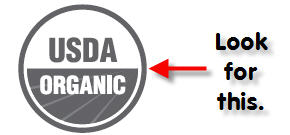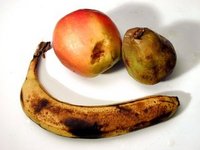Here at the Consumerist we’re not trying to tell you that you need to buy organic soap, but if you do want organic soap… we think you should get what you’re paying for.
organic

Who Owns All The Organic Companies?
Who really owns some of the biggest organic brands in the country? GOOD magazine made one of their sexy graphs to show you. For instance, Coke owns Odwalla, Pepsi owns Naked, and Kraft owns Boca Burgers. The chart also shows you that these parent companies are among the top 30 food processing companies. Not like we’re talking a giant scandal or anything, it’s just interesting to know more about where your food is really coming from. Just because it’s organic doesn’t mean it was made on a happy communal love-farm .

Walmart, Target, Costco, Wild Oats Sued For Selling Fake Organic Milk
The Aurora Dairy controversy has spread to the retailers, as lawsuits seeking class-action status have be filed alleging “that Costco Wholesale Corp., Wal-Mart Stores Inc., Target Corp., Safeway Inc. and Wild Oats Markets Inc. sold Aurora’s milk under their own in-house brand names.”

"Seaweed" Clothing Lacks Seaweed, Tests Show
Have you purchased sportswear at Lululemon Athletica? If you have, you’re not alone, the store is doing quite well selling “organic” sportswear made of odd materials with dubious heath benefits.
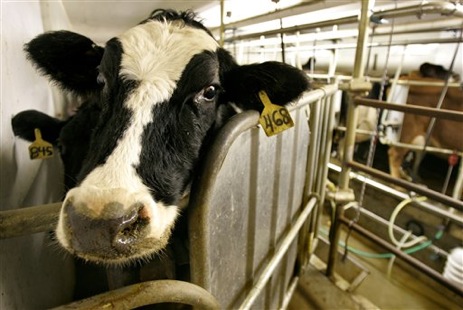
Organic Principles, Regulations Ignored By Nation's Largest Organic Dairy
Consumers in twenty-seven states are suing Aurora Dairy, the nation’s largest organic dairy for selling milk that failed to meet basic organic standards. The suit is bolstered by findings from USDA inspectors, who found that between December 2003 and April 2007, Aurora: “labeled and represented milk as organically produced, when such milk was not produced and handled in accordance with the National Organic Program regulations.”
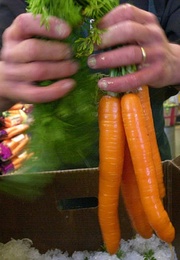
Prevented From Calling Your Produce USDA Certified Organic By Federal Law? Call It "Artisan Naturals" Instead
Stemilt Growers can’t call its produce USDA Certified Organic until they grow without chemicals for three years, but that isn’t stopping them from branding their produce “Artisan Naturals” in the interim. The three year chemical-free transition period is marked by insect infestations, infertile soil, and poor crop quality, which conspire to ravage a farm’s profitability. Stemilt, one of the nation’s largest apple growers, is hoping that consumers will pay a price premium for “natural” produce, which will likely be confused for USDA certified organic produce.
The orchard is in its second year of transition to organic, but the fruit will be sold under Stemilt’s Artisan Naturals label, promoting its naturally farmed history.
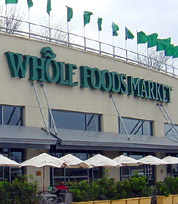
Whole Foods Mocks FTC By Actually Lowering Prices In Colorado Stores
Now that the Whole Foods organic supermarket chain has finally completed its acquisition of former competitor Wild Oats Markets, it’s time for the horrible price gouging we were warned about to kick in. That’s why today Whole Foods announced a permanent price reduction at all Wild Oats stores in the Rocky Mountain Region, and stated that all Wild Oats stores in its hometown of Boulder will remain unchanged. Wait—what? Of course, this amounts to mostly a publicity stunt (or goodwill gesture, depending on your level of cynicism); at least one Wild Oats store in another part of the country has already been closed.
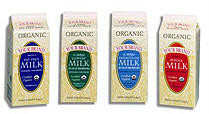
USDA Says Some Organic Milk Is A Rip-Off
If you’re going to pay twice as much for milk because you like the idea that the cows have a yard to play in—that’s your business—but you’d better be getting what you pay for.
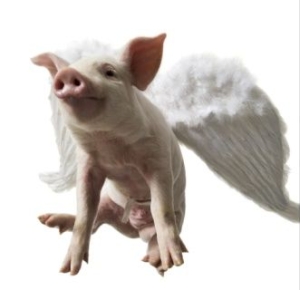
Make Your Own Bacon!
We can’t believe we’re posting this, considering we follow a largely vegetarian diet – but it’s bacon, mmm… [Homer-style drool] For all you do-it-yourself foodies, and for those of you who want to exert a little more control over where your food comes from, Dave at the BSBrewing blog provides a step-by-step guide (with photos!) to curing your own bacon at home.
House Passes Food Farm Bill
Farm policy for the next five years will remain largely the same under a bill passed Friday by the House. The $286 billion measure, H.R. 2419, was approved 231-191. Despite Michael Pollan’s pleas, the farm bill never transformed into a consumer-friendly food bill; though several billion dollars will go towards conservation spending, nutrition programs, and aid to fruit and vegetable growers, a significant chunk of the bill, $42 billion, will fund subsidies to farmers and agribusiness. The Senate is expected to write its own version of the farm bill in September.
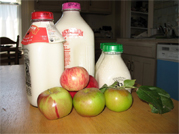
Go Organic Without Breaking the Bank
According to Consumer Reports’ Greener Choices, organic produce, meat and dairy products can cost 50% to 100% more than their conventional counterparts.
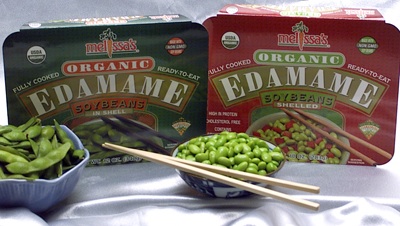
Meet The New Powerhouse In Organic Foods: China!
That certified organic edamame you bought from the local supermarket may have been made and packaged in China. The exporting juggernaut is quickly and quietly muscling in on the thriving global trade in certified organic products. Organic exports from China are certified by private companies and carry the official USDA organic logo. The logo, however, does not guarantee that products are truly organic:
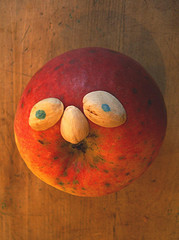
Organic Fruit Healthier Than Standard Produce
A ten-year study found that organic tomatoes contain twice as many antioxidants as conventionally grown tomatoes. The study published in the Journal of Agriculture and Food Chemistry claims that when compared to standard produce, organic strains contain higher levels of two high blood pressure-fighting flavonoids.
These findings also confirm recent European research, which showed that organic tomatoes, peaches and processed apples all have higher nutritional quality than non-organic
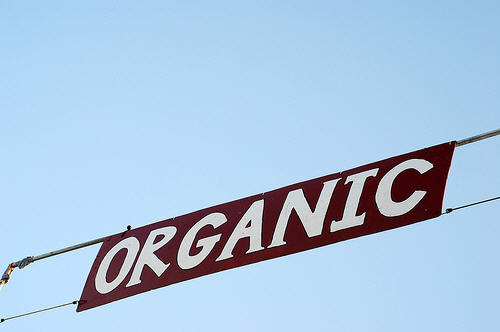
Should Beer Be Labeled "Organic" If It's Made With Non-Organic Hops?
The more we continue to live and breathe on this earth the more we realize that the term “organic” is really just code for “awesome marketing idea.”

This Will Totally Be A Whole Foods Just As Soon As We Clean Up The Toxic Waste
For those of you not familiar with the landscape of the borough of Kings, this is a photo taken from inside of the site of a new Whole Foods store in the Gowanus neighborhood of Brooklyn. Currently, the site is home to an underground toxic plume of benzene that may or may not have originated at the nearby Verizon fuel station. Verizon denies that the fuel station, which is at the epicenter of the toxic plume, is the cause of the mess, despite the fact that there have been 5 oil spills on the site.

The Party’s Over: Spinach is Coming Back
That’s right, you heard me. You’re not leaving the table until you finish your spinach.
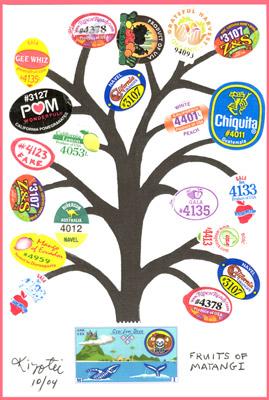
How To Read Your Fruit Stickers
Meg Hourigan, co-founder of Blogger, has posted a methodology for decoding fruit labels to discern whether or not it is conventional, organic or genetically-modified.


